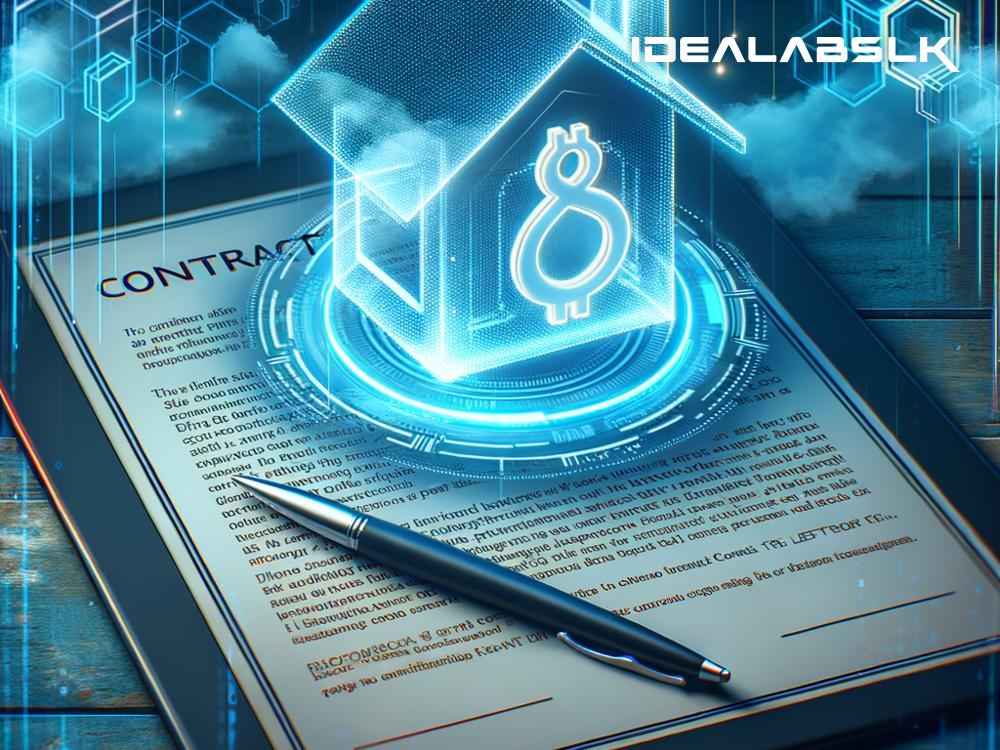How Blockchain Reinforces Property Rental Agreements: A Simple Guide
In today's fast-paced world, the process of renting property can be fraught with complexities and challenges. From ensuring the authenticity of agreements to securing payments, both landlords and tenants can face hurdles that complicate their transactions. However, with the advent of blockchain technology, there's a new, innovative way to streamline and strengthen property rental agreements. Let's dive into how blockchain is changing the game, making rental processes more secure, transparent, and efficient.
Understanding Blockchain in Simple Terms
Before we explore its impact on property rental agreements, let's quickly understand what blockchain is. Imagine it as a digital ledger or record book that's open for everyone to see. This ledger doesn't sit in one place or belong to a single person. Instead, it's spread across a network of computers, making it nearly impossible to tamper with. Each entry in this ledger is a 'block', and every block is connected to the ones before and after it, forming a 'chain'. Hence, the term 'blockchain'.
Blockchain technology is best known for powering cryptocurrencies like Bitcoin, but it has a myriad of other applications, including reinforcing property rental agreements.
The Challenges of Traditional Property Rental Agreements
Traditionally, rental agreements are drafted on paper, signed, and maybe notarized to add an extra layer of authenticity. However, these methods have several drawbacks:
- Forgery Risk: Paper documents can be forged or altered, causing disputes and legal headaches.
- Accessibility: Once signed, these agreements aren't easily accessible to all parties unless copies are made and securely stored.
- Transparency and Trust Issues: Lack of transparency can lead to disputes over what was agreed upon, especially if changes are made to the contract.
- Payment Security: Ensuring that payments are made on time and tracked properly can also be a challenge.
Enter Blockchain: Reinforcing Rental Agreements
Blockchain technology offers solutions to these challenges through its inherent features. Here's how:
1. Immutable Records
Once a rental agreement is recorded on a blockchain, it's nearly impossible to change. This immutability provides a level of security and trust that paper documents or even standard digital copies can't. Both landlords and tenants can rest easy knowing that the agreement cannot be altered once entered into the blockchain.
2. Transparency and Trust
Blockchain operates on a decentralized network, making all transactions transparent to every party involved. When a rental agreement is made on a blockchain, each term is clear and visible to both the landlord and the tenant, ensuring that there are no hidden clauses or misunderstandings.
3. Smart Contracts
One of the most significant advantages of using blockchain in rental agreements is the concept of smart contracts. These are self-executing contracts with the terms of the agreement directly written into code. This means that certain actions (like the release of deposit money) can be automated once both parties meet their agreed-upon conditions, reducing the need for middlemen and making the process more efficient.
4. Efficient Payments
Blockchain can also facilitate secure and direct payments. Whether it's the monthly rent, security deposit, or utility payments, transactions can be made in cryptocurrencies or through blockchain-enabled payment systems. This not only ensures prompt payments but also provides a clear, unalterable record of all transactions, reducing the potential for disputes.
5. Global Accessibility
Blockchain technology makes rental agreements truly global. Regardless of where the landlord or tenant is based, the agreement and all related transactions are accessible from anywhere in the world, given that all parties have internet access. This is particularly beneficial for expatriates or individuals who work in different countries and need to secure housing in advance.
The Future of Property Rentals
While the adoption of blockchain in property rental agreements is still in its early stages, the potential benefits are clear. By addressing key issues such as security, transparency, and efficiency, blockchain technology has the power to radically transform how rental agreements are made and executed.
As more people become familiar with blockchain and its capabilities, we can expect a shift towards more secure, transparent, and efficient processes in property rentals. This not only benefits landlords and tenants by reducing the potential for disputes and making transactions smoother but also paves the way for a more digitized, accessible, and trustworthy real estate market.
In Conclusion
Blockchain technology is not just about cryptocurrencies; it's a revolutionary tool that can bring about significant improvements in various industries, including real estate rentals. By reinforcing property rental agreements through immutable records, automatic enforcement of contracts, and secure transactions, blockchain is set to make the process more transparent, secure, and efficient for everyone involved. As we move forward, embracing these technological advancements could very well redefine the norms of property renting for the better.

